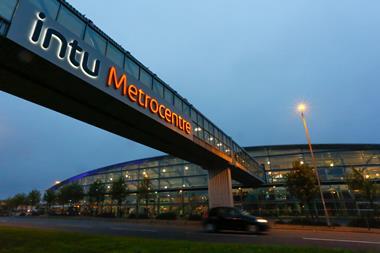REITs are like the fable of the three little pigs who built three houses of straw, sticks and bricks. The big bad wolf was only unable to destroy the house made of bricks. For straw, read shopping centres. For sticks, read offices. For bricks, read the alternatives of ‘beds (student housing, PRS), meds (doctors surgeries) and sheds (logistics, self-storage)’, which are quietly compounding income with stable valuations.

REITs, we think, still look expensive despite having fallen by 19% in 2018 and 26% from their 2015 high point. For those investors thinking they are being compensated with enough income to take the capital risk, beware the weak and weakening cashflows of the majors.
Our ‘Bonfire of the Jargon’ analysis in 2017 has been borne out by Hammerson cutting its dividend growth guidance from 6-8% to 3-5% and intu cutting its full-year dividend after Brookfield pulled out of buying the business.
British Land and Hammerson are buying back shares at ever-lower prices and both are, we think, frittering away cash they can’t afford to. British Land aims to reduce its portfolio retail exposure from 49% to 35%, which it will probably achieve by March 2019 without selling any assets if there is a candid revaluation of its retail warehouses.

British Land and Hammerson share prices are heading back to 2009 levels when the incumbent chief executives took over so the ‘growth’ was illusory and it was just a free QE ride after all.
Woe betide any REIT CEOs blaming the subsidence in retail values on sentiment, the weather or Brexit. It’s all Kabuki and now they are left holding obsolete ‘soft-centred’ shopping centres, retail warehouses and shops on high valuations with collapsing economics, something that share prices understand but estate agents don’t seem to, at least not yet.
The RICS issued a valuation notification in December advising registered valuers of the “structural changes in retail property” and the “potential for significant changes in valuations”. The estate agents’ scalpels are being wielded on 31 December REIT valuations and we see the repercussions of their surgery with results in February and, in particular, we are braced for Hammerson and intu.
“Woe betide any REIT CEOs blaming the subsidence in retail values on sentiment, the weather or Brexit”
Highly indebted retail businesses risk jeopardising their banking covenants with our average shopping centre valuation decline forecast downgraded from -20% to -30%.
Noose tightening on London offices
It is not just retail that is in trouble. The tax noose is tightening on London offices. From April, non-UK residents get caught in the capital gains tax net, which extends to commercial property. Investor return hurdles haven’t changed so there is an ongoing pricing adjustment to be absorbed by vendors.
London’s occupational market is also overextended. The boom in flexible office space has extended the current cycle and kept values higher for longer by absorbing surplus office space, but the market is saturated. SoftBank has cut commitments to funding WeWork’s expansion from $16bn to $2bn this year as flexible business space reaches 30% of take-up in central London.
With capital risk amplified, REIT dividend yields need to be higher to compensate, but without income growth, dividend yields can only be elevated by the denominator effect of lower share prices. Our 2019 REIT outlook note ‘Shadowlands’ opens with a salvo of further NAV, EPS, DPS and price target reductions.
This isn’t a short and shallow real estate correction as we saw after the Brexit referendum in 2016, but, we believe, an impending crash a decade after the REIT sector needed bailing out with £7bn of new equity.
Investors won’t be as accommodating this time around and nor will the banks. Additionally, 25% of real estate debt stock is now provided by high-risk, regulation-lite non-bank lenders (‘Shadowbanks’) – a new feature whose inability to amend, extend and pretend as RBS and Lloyds did in the global financial crisis will exacerbate the downturn.






























No comments yet